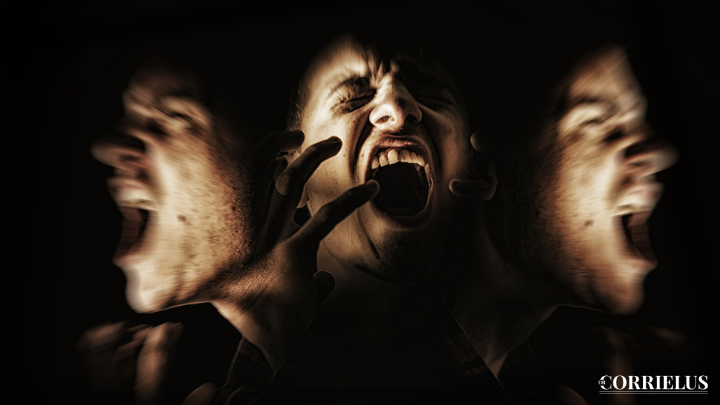The term psychotic disorder refers to a group of serious mental illnesses. They hinder a person’s ability to think clearly, make sound decisions, react emotionally, communicate effectively, comprehend reality, and act appropriately.
Types of psychotic disorders
A variety of psychotic disorders exist, including:
Schizophrenia:
Schizophrenia causes behavior changes and other symptoms that last longer than six months, such as hallucinations and delusions. It typically affects their relationships as well as their work or school environments.
Disorder identified as schizophrenia:
People can exhibit symptoms of both schizophrenia and mood disorders like bipolar disorder or depression.
Disorder with schizophrenia:
This includes schizophrenia symptoms, but they last for less time: between a month and a year.
Disorder with brief psychosis:
This illness causes a brief, sudden episode of psychotic behavior, usually in response to a very stressful event like a family death. Most of the time, recovery takes less than a month.
Psychotic shared disorder, also known as folie à deux:
When one person in a relationship has a delusion and the other person adopts it, this illness occurs.
What are the symptoms of psychotic disorders?
Disordered thinking, hallucinations, and delusions are the most common symptoms.
Things that don’t exist can be seen, heard, or felt in hallucinations. Even though nothing is touching them, a person may, for instance, experience sensations on their skin, hear voices, smell odors, have a “funny” taste in their mouth, or see things that aren’t there.
Delusions are irrational beliefs that persist despite evidence to the contrary. For instance, a person who believes that their food is poisonous despite evidence to the contrary is delusional.
It is possible for a person’s symptoms to change over time as well.
What is the root cause of psychotic disorders?
The exact cause of psychotic disorders is unknown to doctors. Researchers believe that numerous factors are involved. Psychotic disorders may be partially inherited because some tend to run in families. Their growth may also be influenced by stress, substance abuse, and major life shifts.
Parts of the brain that control thinking, perception, and motivation may also be affected by psychotic disorders like schizophrenia.
Experts think that nerve cell receptors for a brain chemical called glutamate might not work right in some parts of the brain in schizophrenia. That flaw could exacerbate cognitive and perceptual issues.
These conditions typically begin to manifest in late teens, early twenties, or early thirties.
They usually have the same effect on men and women.
The majority of psychotic disorders are treated with a combination of medications and psychotherapy—a type of counseling—as the primary treatment.
Medication:
“Antipsychotics” are the most commonly prescribed medications for psychotic disorders. These medications are effective at managing the most troubling symptoms of psychotic disorders, such as delusions, hallucinations, and thinking issues, although they are not a cure.
A word from the doctor
Schizophrenia and other mental health conditions can both result in psychosis.
Psychosis can make you or your loved ones feel uneasy, but it can be treated, especially if it is caught early. A combination of medications, treatments, and changes to one’s lifestyle will be part of the treatment.
Being patient and reassuring to loved ones who are going through mental health issues is also crucial. See a mental health professional for an evaluation if you believe your mental illness is interfering with reality.
And if you still seek any help regarding your health, then contact me right away!



